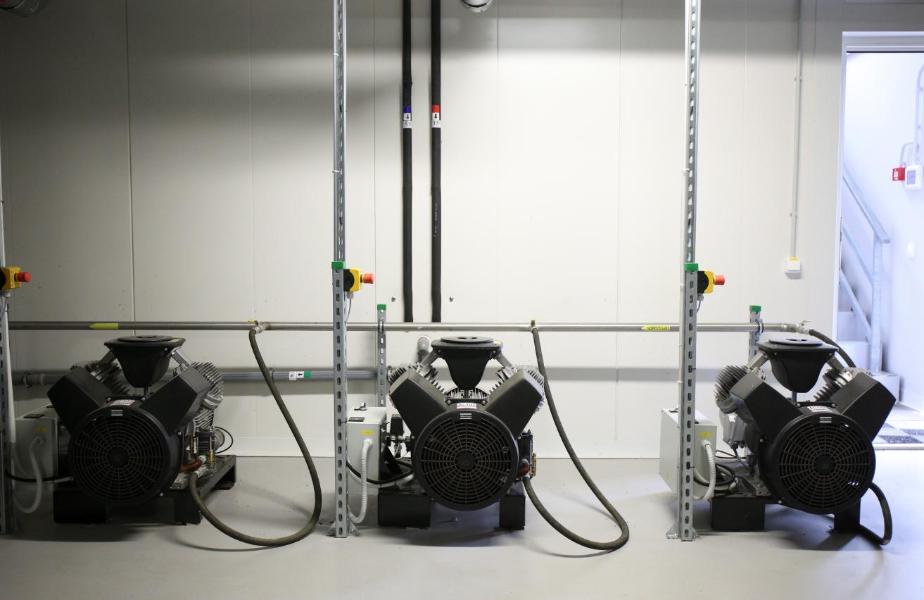
- The EIB lends up to €60 million to a major water and wastewater renovation and extension project in Riga, Latvia.
- The investment loan will have significant environmental benefits, mainly through the reduction of groundwater and surface water pollution, a more efficient use of water resources, and increased energy efficiency and renewable energy generation, benefiting about 620 000 residents of the Riga region.
In Latvia, the European Investment Bank (EIB) has signed water sector operation in the country, through a loan agreement of up to €60 million with the public company SIA Rīgas ūdens, the largest water company in the Baltic States. The EIB sum of €60 million equates to 50% of the total project cost (€120 million).
The direct loan from an international financial institution such as the EIB will help SIA Rīgas ūdens to diversify its funding sources for the remainder of the project cost, using its own funds, EU structural funds and loans from commercial banks.
At present, the company supplies piped water and takes care of wastewater collection for about 98% of the service area population in Riga and its surroundings. Annual consumption of water in the service area was about 33.7 million m3. The annual discharge of wastewater through Rīgas ūdens’ networks is in the order of 50 million m3.
This EIB-financed water project in Latvia will connect more people to an improved water supply system and collect more wastewater and less rainwater in a better functioning wastewater treatment plant, significantly contributing to local environmental protection and sanitation, as well as to climate action for the region of Riga.
The key driver for this EIB investment project is to ensure cost-efficient, continuous and safe water treatment, water supply, and sewage collection and treatment, in accordance with the EIB’s climate bank policy, as well as environmental and regulatory requirements.
EIB Vice-President Thomas Östros said: “I am proud of the EIB supporting this key water project in Latvia. This project contributes to environmental protection in line with the EIB’s ambition as the EU climate bank. We are increasing our financing of climate action projects such as this. This environment and health project will help strengthen the European Union’s economic, social and territorial cohesion in a priority region by developing and improving the quality of water supply and sewage system services to benefit the Riga region and Latvia.”
The Chief Executive Officer of SIA Rīgas ūdens Krišjānis Krūmiņš commented: “This funding will enable us to regularly renew Riga's water management infrastructure and modernise it in line with our strategic goals. It is very important to increase the availability of the centralised water supply and sewerage networks for households in Riga, promoting a better living environment and reducing environmental pollution. Therefore, we also plan to carry out renovation works at the Daugavgrīva biological wastewater treatment plant to consistently provide high quality wastewater treatment. We are also pleased that the EIB has assessed the management and financial circumstances of SIA Rīgas ūdens as being in line with the Bank's financing policy. This agreement with the EIB gives us favourable conditions, including long-term repayment of up to 17 years, reducing the costs of attracting financing and ensuring stability in achieving our long-term goals.”
Background information:
As the EU climate bank, the EIB is committed to supporting €1 trillion of climate action and environmental sustainability investments by 2030.
In 2021, the EIB signed close to €98 million in new financing in Latvia, covering areas such as national infrastructure, education and innovation. The EIB Group’s investment in Latvia equalled 0.35% of its gross domestic product (GDP).
SIA Rīgas ūdens is the largest water supply company in the Republic of Latvia, and operates the water supply and wastewater infrastructure in the capital city of Riga and a few surrounding towns. In 2021, there were 650 000 people in its service area, with 98% being connected to the water supply and wastewater collection systems.
Policy framework: EIB Climate Bank Roadmap, EU Water Framework Directive 2000/60/EC and Urban Wastewater Treatment Directive 91/271/EC, EU regional cohesion policy.